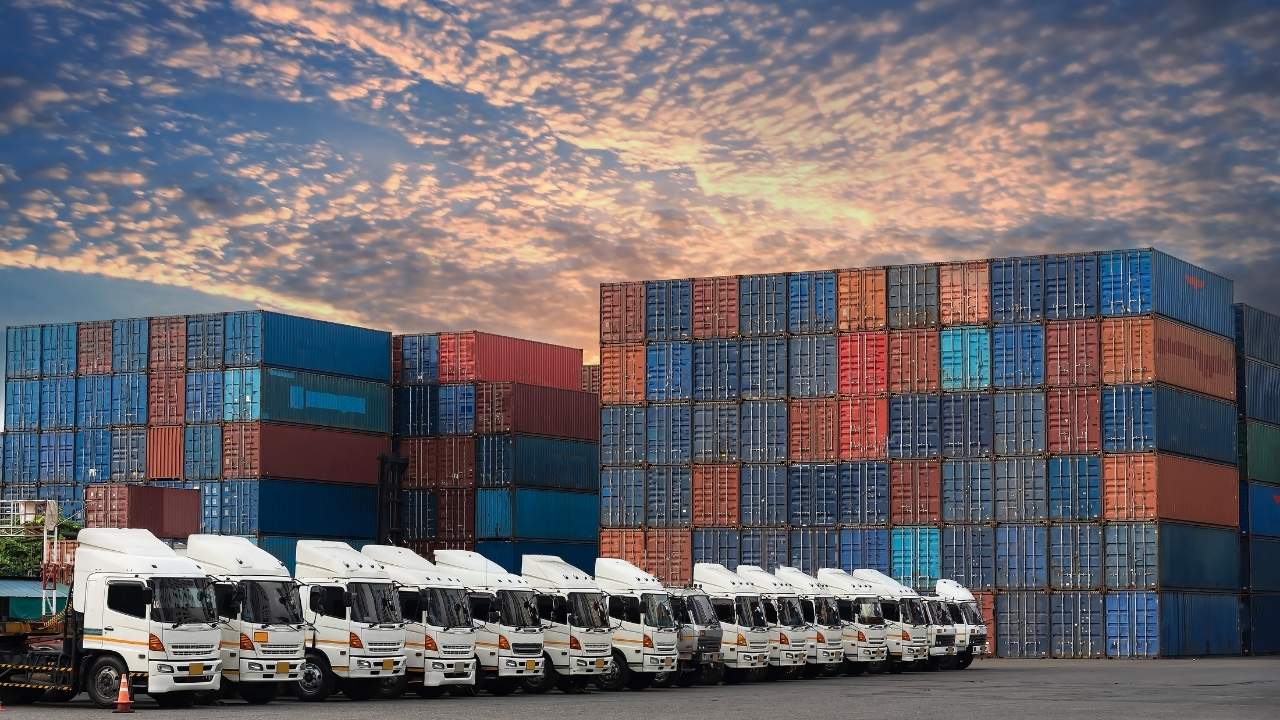The Ultimate Guide to Logistics Management: Strategies, Best Practices, and Trends
Introduction
Logistics management is the art and science of planning, organizing, and managing activities related to the transportation and storage of goods along the supply chain. As the backbone of commerce, effective logistics management ensures businesses have the right products in the right quantities in the right condition, at the right place and time, while meeting customer expectations at the lowest possible cost.
With the rise of globalization and e-commerce, logistics management has become more complex yet critically important. This article will provide an in-depth guide to what logistics management entails, its benefits, key components, as well as innovations, best practices and trends that are shaping the future of the field.
Section 1: What is Logistics Management?
Logistics management is defined as the part of the supply chain that plans, implements, and controls the efficient, effective forward and reverse flow and storage of goods, services, and related information between the point of origin and point of consumption.
The history of logistics management dates back thousands of years to ancient civilizations that organized the shipment of materials for construction and warfare. As global trade boomed during the Industrial Revolution, logistics became more formalized as companies started looking at more efficient ways to store and transport goods.
Today, logistics management utilizes a complex network of people, transportation, warehouses, inventory, packaging, material handling equipment, and technology to meet customer demands.
Key components of Logistics Management include:
- Transportation Management: Transporting materials using trucks, trains, ships, and airplanes. Activities involve mode and carrier selection, routing, tracking, and auditing.
- Warehouse Management: Storing and managing inventory, understanding storage costs, and determining warehouse locations and capacity.
- Inventory Management: Balancing the supply and demand of products through inventory replenishment techniques. This includes the deployment of just-in-time or JIT inventory systems.
- Freight Audit and Payment: Reviewing transportation invoices and paying freight bills to ensure regulatory compliance and cost control.
- Order Management: Receiving, tracking, and filling customer orders accurately and efficiently. Sustainability: Ensuring logistics operations minimize environmental impact in areas such as emissions, waste, and energy consumption.
Section 2: Benefits of Logistics Management
Effective logistics management provides many tangible and intangible benefits:
- Cost Savings: Optimizing transportation, warehouses, inventory, packaging, and information flow reduces operational expenses.
- Revenue Growth: Meeting customer expectations consistently grows sales.
- Competitive Advantage: Superior customer service and on-time delivery provides an edge over rivals.
- Visibility and Control: Data analysis provides end-to-end supply chain transparency and helps anticipate disruptions.
- Flexibility and Scalability: Logistics networks can scale, adapt, and handle changes in demand.
- Customer Satisfaction: On-time precise order fulfillment with transparent tracking improves loyalty.
- Compliance: Following the trade, security, and environmental regulations avoids fines and penalties.
Section 3: Key Components of Logistics Management
Delivering the perfect order every time relies on excellence in these key logistics capabilities:
- Transportation Management: Efficiently transporting inventory impacts cost and customer service. Key aspects like route optimization, load planning, shipment visibility, and evaluating transportation modes are imperative.
- Warehouse Management: Storing goods while managing available space, safe material handling and inventory tracking systems form the backbone of warehousing. Key aspects include utilization of vertical space and optimizing worker productivity to hold down costs.
- Inventory Management: Strategic decisions regarding the right amount of stock and where to deploy it is key for inventory management. Popular techniques include just-in-time, vendor managed inventory, drop shipping and cross docking to improve capital efficiency.
- Freight Audit and Payment: Verifying freight bills and paying only the correct charges ensures compliance and prevents overpaying. A 1% reduction in freight payment errors can yield a 10% jump in net profit.
- Order Management and Fulfillment: Precision in order processing and management improves speed and accuracy. Barcode scanning, inventory optimization tools, and shipment tracking systems drive performance.
Section 4: Logistics Management in E-Commerce
The rise of e-commerce has led to new challenges in logistics management. Key aspects include:
- Challenges High Order Volumes: Popular e-tailers process over a million parcels daily requiring heavy automation. Seasonal peaks like Black Friday spike volumes even higher.
- Fast Delivery: Customers expect shorter delivery times and maximum order traceability. 50% of shoppers abandon orders with over 5-day delivery times.
- Returns Management: Ease of ordering means higher return rates, making reverse logistics vital for e-commerce profitability.
- Last Mile Delivery: The last mile leg to the customer’s doorstep has the highest cost per package and accounts for over 50% of total shipping costs.
- Strategies Dropshipping: Order fulfillment is handled by manufacturers and wholesalers, reducing inventory and logistics costs.
- Third-Party Logistics (3PL): Outsourced logistics providers leverage expertise and economies of scale.
- Dark Stores/Virtual Inventory: Dedicated local fulfillment centers that carry no inventory but quickly source from nearby stores or warehouses.
- Best Practices Leverage Data Analytics: Forecast demand to align inventory planning and positioning. Analyze delays and streamline processes.
- Automate Workflow: Automate order processing, warehouse management, inventory allocation, and shipment routing.
- Optimize Delivery Experience: Facilitate easy delivery tracking, convenient return options, and proactive exception management.
Section 5: Logistics Management in Manufacturing
Logistics is a key component of lean manufacturing and continuous improvement strategies. Excellence in planning, sourcing, making & delivering improves productivity.
- Importance Synchronized Scheduling: Aligning production and inventory planning slashes work-in-progress costs and stockout risks.
- JIT Inventory: “Just-in-time” inventory cuts carrying costs, frees up capital and reduces waste substantially.
- Quality Assurance: Smooth logistical operations prevent production disruptions that impact quality control and compliance.
- After-Sales Support: Managing spare parts inventory facilitates superior after-sales service levels to improve customer retention.
- Strategies Vendor Managed Inventory (VMI): Suppliers plan replenishments for raw materials based on consumption data shared by manufacturers. This shifts the inventory management burden away from manufacturers.
- Cross Docking: Received goods are sorted, consolidated, routed, and shipped without entering long-term storage. This reduces touch points, costs, and handling losses.
- Best Practices Integrated Systems: Connect logistics data feeds with production planning and inventory management systems to minimize delays and excess stock.
- Collaborative Approach: Involve logistics service providers early in product development and project implementation for efficient life cycle management.
- Flexible Networks: Maintain relationships with multiple suppliers and logistics vendors to manage disruptions seamlessly.
Section 6: Logistics Management in Food Industry
From perishable fruits to frozen meat, the food industry faces distinct logistical challenges:
- Challenges Maintaining Cold Chain: Shipments must be kept at precise temperatures as perishables get spoiled without proper cold chain management.
- Regulatory Compliance: Food safety and health regulations require diligent compliance and full traceability across the supply chain.
- Seasonal Demand: Crops have seasonal harvesting times leading to spikes in transportation and storage needs.
- Strategies Deploy Temperature Controlled Trucks: Refrigerated trucks and cold storage warehouses become vital for preventing food spoilage.
- Adopt Warehousing Best Practices: First-in-first-out stock rotation, pest control, inventory tracking systems, and strict hygiene controls manage food safely.
- Use Radio Frequency Identification (RFID): RFID tags monitor temperatures and product conditions at every step from farms to stores.
- Best Practices Frequent Sanitization: Proper equipment and warehouse sanitization is non-negotiable.
- Implement Redundancies: Backup power generators, multi-sensor temperature monitors, and contingency transportation plans prevent disruptions.
- Conduct Audits: Regular third-party food safety and logistics audits verify operational discipline.
Section 7: Logistics Management in the Pharmaceutical Industry
Stringent regulations and zero tolerance for errors make pharma logistics highly complex:
- Challenges Navigating Regulations: Local and international laws related to licensing, storage, transportation, and trade compliance make logistics complicated.
- Product Integrity: Medicines and vaccines degrade without proper cold chain storage and handling exposing companies to huge risks.
- Security Concerns: High-priced inventories face theft risks necessitating investment in security and track-and-trace systems.
- Strategies Deploy Cold Chain Logistics: End-to-end refrigerated storage and transportation preserves the integrity of temperature-sensitive pharma products.
- Leverage Distribution Centers: Regional distribution hubs allow flexibility to cater to local demand while consolidating inventories centrally.
- Best Practices Validate Processes: Ensure standard operating procedures cover material handling, storage, cleaning and maintenance with full compliance.
- Embrace Automation: Automated monitoring, alerts, documentation, track & trace and reporting improves accuracy while reducing labor expense. Focus on Training: Conduct rigorous training to ensure personnel follow protocols precisely.
Section 8: Emerging Trends and Innovations in Logistics Management
Rapid technological advances are disrupting logistics operations in exciting ways:
- Internet of Things (IoT) based sensors provide real-time visibility for tracking orders, fleet, and shipment status.
- Artificial Intelligence and Machine Learning algorithms enhance route optimization, traffic prediction, and demand forecasting.
- Blockchain establishes trusted supplier networks allowing transparent tracking of orders, payments, and customs documentation.
- Autonomous vehicles and drones enable faster last-mile deliveries in urban areas.
- Cloud-based logistics platforms integrate systems providing control tower visibility across end-to-end supply chains.
Impact of the Emerging Trends on Logistics Management:
- Boosted Efficiency: Automating manual processes improves productivity and accelerates deliveries.
- Enhanced Flexibility: AI-powered software easily adapts routing plans to handle real-time disruptions.
- Lower Costs: Eliminating paperwork provides significant cost savings. Drones and robots also reduce last-mile costs.
- Better Customer Experience: Real-time tracking and visibility build trust while analytics-based customer service anticipates issues before they happen.
Section 9: Best Practices for Logistics Management
Follow these vital best practices for successful logistics management:
- Emphasize Collaboration Break down silos between departments, different facilities, and across outsourced vendors. Lack of communication is the #1 cause of supply chain failures.
- Leverage Data Analytics Take advantage of data for accurate demand forecasting to optimize inventory and supply planning. Analyze past performance to fine tune processes.
- Adopt Lean Principles Eliminate waste by focusing on continuous improvement initiatives across transport, storage, inventory handling and order processing.
- Evaluate Service Providers Assess 3PLs and other vendors periodically based on cost, service quality, transparency, and technology capabilities.
Some key best practices for Logistics Management include:
- Communication and collaboration: Coordinate closely with partners across the supply chain.
- Data utilization: Leverage data to gain visibility and drive optimization.
- Standardized processes: Document procedures to ensure consistency. [
- Continuous improvement: Regularly review performance metrics and implement enhancements.
- Lean principles: Eliminate waste and non-value-adding steps.
- Risk management: Identify and mitigate risks like supply chain disruptions.
Case Studies in Logistics Management
- Amazon: Amazon pioneered fast, flexible delivery through regional warehouses, automation, route optimization, and crowdsourced delivery.
- Walmart: Walmart leverages massive volumes and centralized distribution to achieve low costs. Cross-docking speeds up processing.
- Coca-Cola: Coca-Cola built a global cold chain ensuring product quality and freshness. Real-time monitoring prevents disruptions.
Section 10: Conclusion
Logistics management encompasses the strategies, planning and processes that focus on the efficient transportation and storage of goods. Mastering logistics capabilities creates resilient and agile supply chains delivering substantial cost reductions alongside supreme customer service.
Logistics management is a complex undertaking, but the right technology can help businesses optimize their supply chain operations. Versa Cloud ERP is an ideal solution for managing inventory, warehouses, manufacturing, and logistics from end to end.
With robust inventory management capabilities, Versa Cloud ERP provides real-time visibility into stock levels across multiple locations. Users can set reorder points and automate purchase orders to ensure optimal inventory. Advanced warehouse management tools enable efficient stock putaway, picking, and shipping processes.
Versa Cloud ERP is specially designed for manufacturers, with capabilities like production planning, quality control tracking, and scheduling. By integrating raw material procurement with production schedules, manufacturers can implement just-in-time principles to minimize inventory costs.
Seamless 3PL integration further optimizes the supply chain. With end-to-end visibility across orders, inventory, transport, and fulfillment, Versa Cloud ERP empowers users to identify bottlenecks, reduce costs, and improve logistics performance. The built-in reporting and analytics provide data-driven insights for continuous improvement.
By leveraging Versa Cloud ERP, businesses can drive growth and profitability through a streamlined, resilient, and efficient supply chain. Schedule a free demo today to experience the benefits firsthand.
FAQ’s
How can I reduce logistics costs?
Strategies to lower logistics costs include improving shipment consolidation, optimizing packaging to increase density, leveraging economies of scale in transportation, reducing excess inventory, eliminating non-value-added steps, and adopting technology to improve efficiency.
What are some challenges in omnichannel logistics?
Omnichannel logistics introduces challenges like complex order fulfillment across nodes, inconsistent customer experiences across channels, managing returns and reverse logistics across channels, and greater uncertainty in demand forecasting.
How is blockchain used in logistics?
Blockchain improves logistics by enhancing supply chain transparency and traceability, streamlining paperwork through smart contracts, improving coordination between parties, and securing records like bills of lading and customs documents.
What are some key metrics for evaluating logistics performance?
Key logistics metrics include perfect order rate, days in inventory, total supply chain costs, transportation utilization, warehouse capacity utilization, and customer delivery experience ratings.
What are the benefits of nearshoring and reshoring?
Nearshoring and reshoring mitigate risks of long overseas lead times, improve flexibility and speed to market, reduce transportation costs, and allow closer supplier relationships and quality control
How can logistics improve sustainability?
Sustainability logistics practices include route optimization, load consolidation, switching to biofuels, reducing packaging waste, recycling pallets and containers, and using energy-efficient warehouses and fleets.
What are the advantages of outsourcing logistics to a 3PL?
3PL advantages include leveraging expertise and specialized capabilities, converting fixed costs to variables, focusing on core competencies rather than logistics execution, and gaining access to the latest technology and innovations.
How is logistics management evolving?
The future of logistics involves greater digitization and automation, more sustainable practices, highly customized and experience-driven delivery, more resilient and agile networks, and leveraging emerging technologies like AI, IoT, robotics, and self-driving vehicles.
How has technology impacted logistics management?
Technologies like barcode scanning, RFID, GPS, robotics, automated storage and retrieval systems, transportation management systems, and supply chain analytics software have enabled greater tracking, visibility, and optimization of logistics operations.
What are some best practices for logistics management?
Best practices include establishing strategic partnerships with suppliers/carriers, leveraging data analytics, implementing lean principles to eliminate waste, benchmarking performance, and building in redundancy and flexibility to mitigate supply chain disruptions.
How can companies improve their logistics operations?
Strategies include network optimization, technology adoption, using 3PLs, implementing TMS and WMS systems, improving inventory management, warehouse automation, real-time tracking, and focusing on continuous improvement through data analysis.
A Business in the modern day is complex and requires resources to deliver on its goals and achieve its full potential. To create a small business success story business owners need an ERP system that grows with them.
Effectively manage your financials, inventory, and production workflows with our award-winning ERP.
Let Versa Cloud Erp’s do the heavy lifting for you.
[widget id=”custom_html-40″]
[widget id=”custom_html-42″]
[widget id=”custom_html-30″]
Do Business on the Move!
Make your businesses hassle-free and cut the heavyweights sign up for the Versa Cloud ERP today!!
Join our Versa Community and be Future-ready with us.
[widget id=”custom_html-20″]






